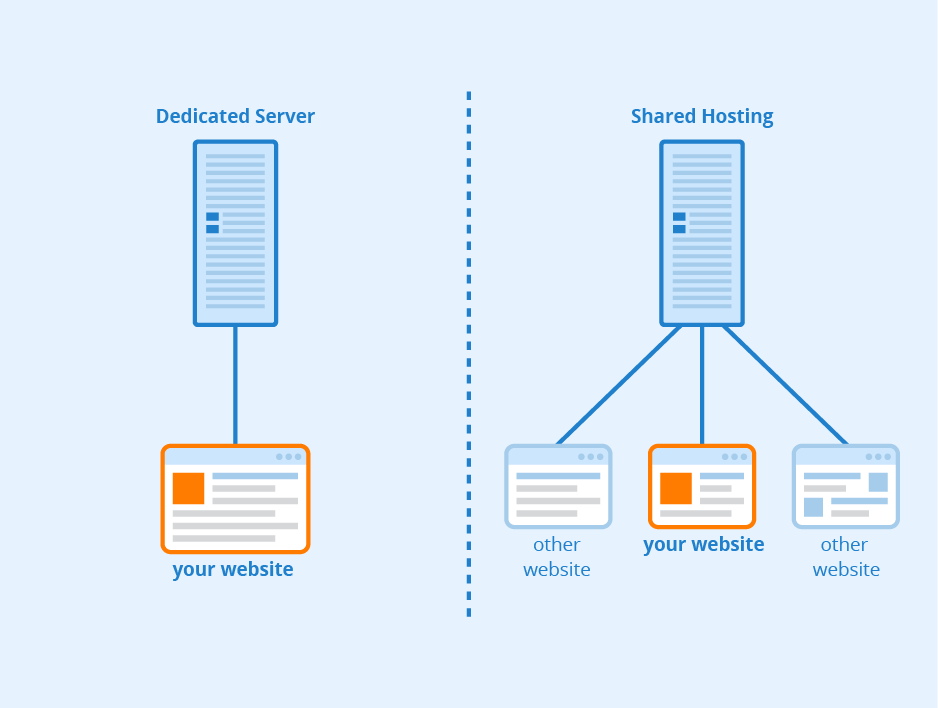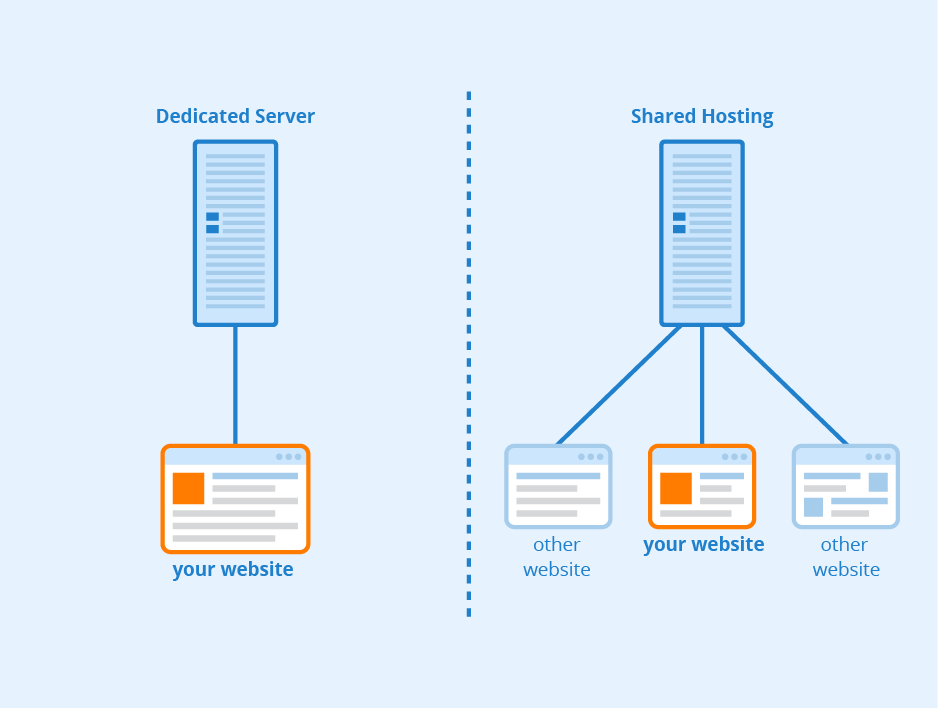Cloud hosting is generally faster than shared hosting due to its distributed nature. While shared hosting resources are shared by multiple users, cloud hosting utilizes multiple servers to distribute your website’s load and improve performance. Cloud hosting also offers scalability, allowing you to easily handle traffic surges without affecting speed. Additionally, cloud hosting often has redundant infrastructure in place to ensure reliability and minimize downtime. As a result, cloud hosting provides faster response times and better overall performance for your website.
When it comes to website hosting, speed is crucial. But which is faster: cloud hosting or shared hosting? The answer may surprise you. While shared hosting has been the go-to choice for many businesses, cloud hosting has emerged as a powerful alternative that offers superior speed and performance.
Cloud hosting operates on a network of multiple virtual servers spread across different locations, ensuring that resources are readily available to handle website traffic spikes. This distributed architecture enables cloud hosting to deliver faster page load times and improved website performance.

Introduction to Cloud Hosting and Shared Hosting
Hosting is an essential aspect of building and managing a website. When it comes to hosting options, two popular choices are cloud hosting and shared hosting. Both have their own advantages and disadvantages, but one of the key factors that website owners often consider is speed. In this article, we will explore the question: Is cloud hosting faster than shared hosting? By understanding the differences between these two options and examining their performance criteria, we can determine which is the better choice in terms of speed and overall website performance.
To begin, let’s define what cloud hosting and shared hosting are. Cloud hosting is a type of hosting where the website data is stored across multiple servers in a virtual environment. This means that the website is not reliant on a single physical server, and resources can be dynamically allocated based on the website’s needs. On the other hand, shared hosting involves hosting multiple websites on a single physical server. Each website shares the resources of that server, which can include CPU, RAM, and disk space.
Now that we have an understanding of the basic concepts, let’s delve deeper into the topic and explore the factors that contribute to the speed of cloud hosting and shared hosting.
Performance Factors of Cloud Hosting
Cloud hosting offers several performance advantages over shared hosting. Let’s take a closer look at these factors:
Scalability and Flexibility
One of the key benefits of cloud hosting is its scalability and flexibility. Since cloud hosting utilizes a virtual environment with multiple servers, resources can be easily scaled up or down based on the website’s needs. This means that as traffic increases, additional resources can be allocated to ensure optimal performance. On the other hand, if traffic decreases, resources can be scaled down to save costs. This scalability and flexibility contribute to faster load times and improved website performance.
Furthermore, cloud hosting allows for faster deployment of resources. With traditional shared hosting, adding or upgrading resources can be time-consuming. However, with cloud hosting, resources can be provisioned instantly, allowing for quick adjustments to meet the demands of the website.
In addition to scalability and flexibility, cloud hosting also offers high availability. Since the website data is distributed across multiple servers, if one server fails, the website is automatically redirected to another server, ensuring minimal downtime and faster response times. This redundancy in infrastructure contributes to the overall speed and performance of cloud hosting.
Server Location
The location of the server can also impact the speed of a website. With cloud hosting, website owners have the flexibility to choose the server location. This means that the website can be hosted in a server close to the target audience, reducing latency and improving page load times. Fast loading times are crucial for user experience and can have a positive impact on website rankings in search engines.
Moreover, cloud hosting providers often have multiple data centers across different locations. This allows them to distribute the website data geographically, ensuring that content is delivered quickly to users regardless of their location. The distributed nature of cloud hosting can significantly improve the speed and performance of a website.
Resource Allocation
Cloud hosting provides dedicated resources for each website, which means that the website’s performance is not affected by other websites on the same server. This is in contrast to shared hosting, where the resources are shared among multiple websites, and traffic spikes or resource-intensive processes of other websites can impact the performance of the entire server.
With cloud hosting, the website has its own allocation of resources, ensuring consistent performance even during peak traffic periods. This dedicated allocation contributes to faster load times and improved website speed.
Performance Factors of Shared Hosting
While cloud hosting offers several performance advantages, shared hosting also has its own strengths. Let’s explore the performance factors of shared hosting:
Cost-Efficiency
Shared hosting is generally more affordable than cloud hosting. Since multiple websites share the resources of a single server, the costs are distributed among the website owners. This makes shared hosting a cost-efficient option, especially for small businesses or individuals with limited budgets.
However, it’s important to note that cost-efficiency comes at the expense of performance. Since the resources are shared, the website’s speed and performance can be affected by the activities of other websites on the same server. This can result in slower load times and decreased overall performance.
Ease of Use
Shared hosting is known for its ease of use and simplicity. Hosting providers typically offer user-friendly control panels and management tools, making it easy for website owners to set up and manage their websites without technical expertise. This accessibility and user-friendly interface make shared hosting a popular choice for beginners or those with limited technical knowledge.
However, it’s important to note that the simplicity of shared hosting may come at the expense of customization and advanced features. Shared hosting often has limitations on software installations and configurations, as well as restricted access to server settings. Therefore, if a website requires advanced customization or specific software configurations, shared hosting may not be the best option in terms of performance and flexibility.
Maintenance and Security
Shared hosting typically includes server maintenance and security as part of the hosting service. Hosting providers are responsible for server updates, hardware maintenance, and security measures such as firewalls and malware protection. This relieves the website owner from the burden of server management and allows them to focus on their core business or website content.
However, since multiple websites are hosted on the same server, the security of one website can potentially affect other websites on the same server. If one website is compromised, there is a risk of cross-contamination, leading to a larger security breach. It’s essential for website owners to ensure that their website’s security measures are up to date to protect their data and the data of other websites on the shared server.
Conclusion
In conclusion, when it comes to speed and performance, cloud hosting has the upper hand over shared hosting. The scalability, flexibility, and resource allocation offered by cloud hosting contribute to faster load times and improved website performance. Additionally, the ability to choose server location and the high availability of cloud hosting further enhance its speed and reliability.
While shared hosting may be more cost-effective and user-friendly, it falls short in terms of performance compared to cloud hosting. The shared resources and potential impact from other websites can result in slower load times and decreased overall performance.
Ultimately, the choice between cloud hosting and shared hosting depends on the specific needs and priorities of the website owner. If speed and performance are top priorities, cloud hosting is the recommended option. However, if cost-efficiency and ease of use are more important, shared hosting may be a suitable choice.
Regardless of the hosting option chosen, it is crucial for website owners to regularly monitor and optimize their websites to ensure optimal performance. Factors such as website design, code optimization, and content delivery networks can also significantly impact the speed and performance of a website.
Now that you have a better understanding of the speed differences between cloud hosting and shared hosting, you can make an informed decision based on your specific needs and priorities.
For more information on web hosting options and best practices, check out our comprehensive guide to website hosting.
Key Takeaways: Is Cloud Hosting Faster Than Shared Hosting?
- Cloud hosting typically offers faster page loading speeds compared to shared hosting.
- Cloud hosting allows for better scalability, meaning your website can handle high levels of traffic without slowing down.
- Shared hosting can be slower due to the limited resources being shared among multiple websites.
- Cloud hosting utilizes multiple servers, distributing the workload and increasing performance.
- While cloud hosting may be faster, it is important to consider other factors such as cost and specific hosting needs.
Cloud hosting is generally faster than shared hosting due to its advanced infrastructure and ability to scale resources on demand.
In shared hosting, multiple websites share the same server resources, leading to slower performance when traffic spikes. On the other hand, cloud hosting utilizes a network of servers that work together to handle traffic efficiently, resulting in faster load times and improved website performance.

